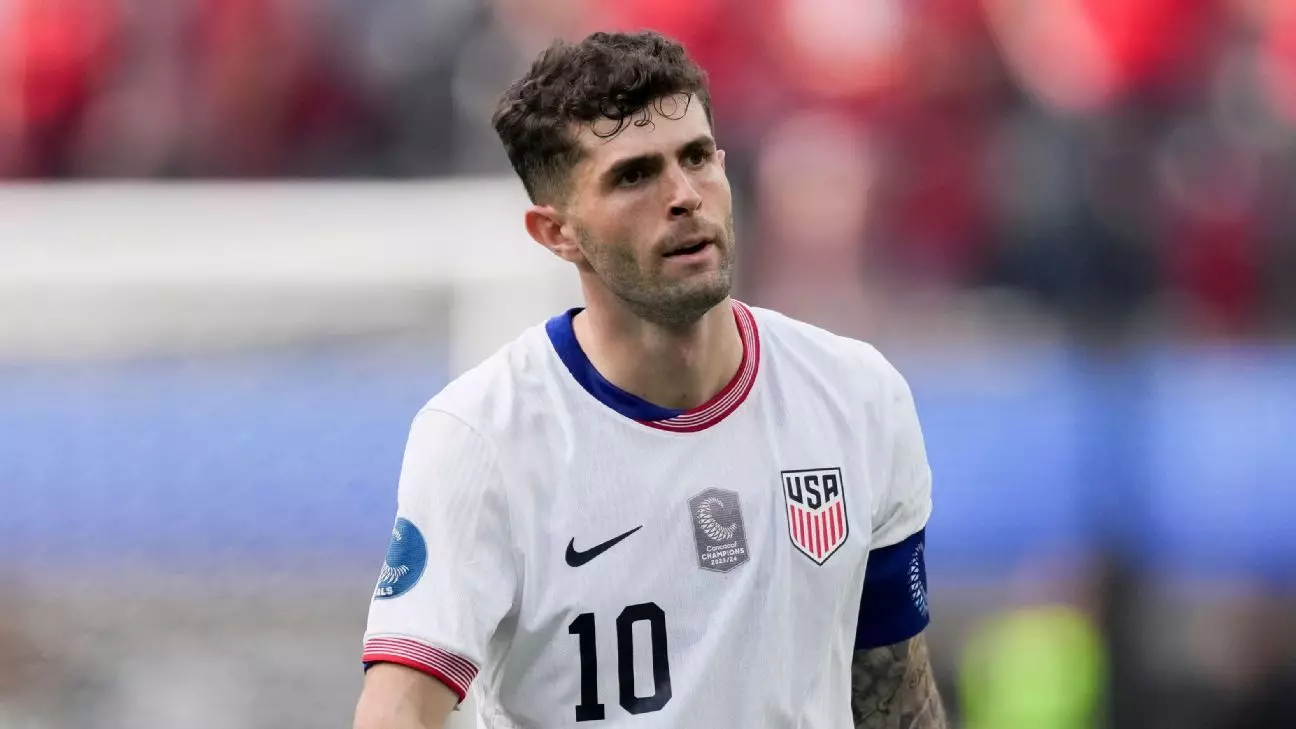In the world of professional sports, expectations often collide with personal choices, leading to heated debates on representation and commitment. The recent confrontation between U.S. soccer legends Landon Donovan and Christian Pulisic’s father, Mark, highlights this tension vividly. Donovan, a pivotal figure in American soccer history, expressed disappointment in Pulisic for opting out of the upcoming Gold Cup, creating an atmosphere of scrutiny around the young midfielder’s commitment to his national team. Donovan emphasized that players should regard their international duties with the utmost seriousness and urgency, referencing the legendary Cristiano Ronaldo as a benchmark for dedication, even in the twilight of his illustrious career.
Donovan’s passionate remarks, which echoed through broadcasting platforms, struck at the very heart of American soccer culture. The underlying message was clear: soccer is not merely a job; it is a responsibility to a nation and an honor that should not be taken lightly. But what Donovan may overlook is the complex reality of modern professional athletes, who now navigate careers stressed by intense physical demands and mental fatigue. The narrative pits that romantic ideal of representational pride against the real-world implications of exhaustion and mental health—issues too often glossed over in the fervor of sports fanaticism.
A Father’s Defense
In a provocative rebuttal, Mark Pulisic rallied around his son by shedding light on Donovan’s own hiatus from soccer during the 2012-2013 season. By invoking artificial intelligence to articulate his points regarding Donovan’s sabbatical, Mark demonstrated an astute understanding of the modern socio-digital landscape while also framing an argument that called for empathy rather than disdain. This strategic maneuver not only challenged the hypocrisy residing in Donovan’s critiques but also showcased that athletes, like any other individuals, face moments of human frailty.
The use of AI to articulate complex narratives about mental well-being in sports reflects a shift in society’s broader understanding of health. Historically, athletes were often expected to perform unfalteringly, with their personal struggles brushed aside in favor of unwavering loyalty to their team colors. However, the conversation is changing. It’s heartening to see a father advocating for his son’s mental health, emphasizing that taking a step back to recharge isn’t an act of cowardice but a mature decision that can ultimately enhance performance—if one is to think long-term.
The Need for Understanding and Evolution
As fans and commentators alike rally behind or condemn players for their choices, it’s important to recognize that the landscape of sports is evolving. Young athletes face pressures that previous generations could scarcely imagine, and the expectations to produce results back-to-back often come at an immense cost. The blend of performance anxiety, social media scrutiny, and public expectation puts an unrelenting strain on the mental health of even the most seasoned players.
Former players like Alexi Lalas joined Donovan in critiquing Pulisic’s choice, arguing that the Gold Cup serves as vital preparation for next year’s World Cup, hosted across a trifecta of nations. Yet, while it is valid to stress the importance of cohesion and teamwork, is it wise to prioritize tournament appearances over a player’s well-being? The age-old battle between the idea of a patriot’s duty and an individual’s mental health continues to stir heated discussions, with both sides presenting compelling arguments.
The Confluence of Performance and Mental Health
What the criticisms of Pulisic reveal is less about the specific player and more about the collective mindset that surrounds U.S. soccer heritage. To insist that only those who are ready to perform at peak levels can don the national jersey risks sidelining the very delicacies that make the sport beautiful—namely, the human emotions that drive player passion and perseverance.
Therefore, as the soccer community debates the merits and demerits of taking breaks—a conversation initiated by Donovan and amplified by Mark Pulisic and the nuanced responses that follow—what should emerge is understanding. The landscape is shifting as we recognize that success in sports is no longer solely defined by the number of games played but rather by an athlete’s holistic health and continued engagement in the sport they love. The call for commitment should be tempered with compassion, creating a more dynamic and supportive environment for future generations of athletes.


Leave a Reply